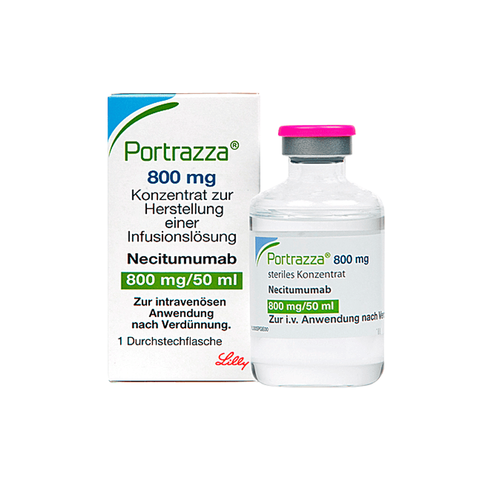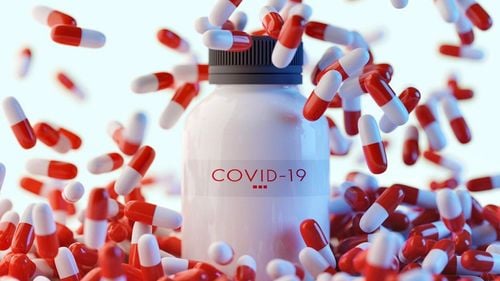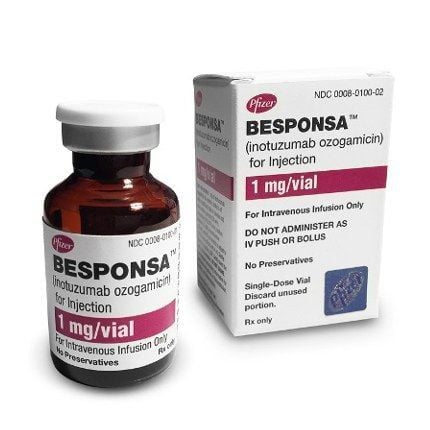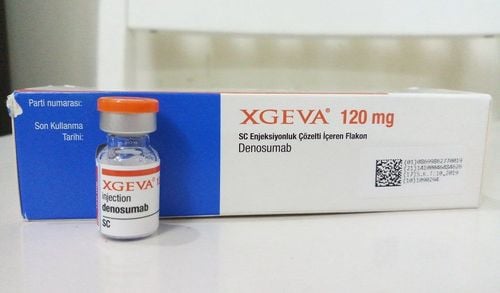This is an automatically translated article.
Avsola drug is a monoclonal antibody used in some cases of autoimmune diseases such as rheumatoid arthritis, ankylosing spondylitis,... Unresponsive to other conventional treatments. This is a medication to be taken under the supervision of a healthcare professional because it can cause some side effects. For more information about the drug, please refer to the article below.
1. What is Avsola?
Avsola medicine has the main active ingredient infliximab, which is prepared as an intravenous injection.
Infliximab is a mosaic monoclonal antibody with high affinity for soluble and transmembrane forms of tumor necrosis factor-α (TNF-α) that inhibits TNF-α receptor binding. its. Helps reduce inflammation and suppresses immunity, thereby preventing the immune system from reacting to the body's own tissues causing autoimmune disease.
Avsola is used to treat certain autoimmune conditions such as rheumatoid arthritis, psoriatic arthritis, ankylosing spondylitis, and severe or disabling plaque psoriasis in adults. Avsola is also used to treat ulcerative colitis or Crohn's disease in adults and children who are at least 6 years old.
Usually, Avsola is used when other medicines don't work
2. Uses of Avsola
Drugs whose main effect is immunosuppressive, should be used in some diseases when other measures are not effective, including:
Rheumatoid arthritis. Psoriatic arthritis Ankylosing spondylitis Crohn's disease, ulcerative colitis (UC) Sarcoidosis Severe psoriasis Contraindications:
Do not use if you have a history of allergy to any of the ingredients. Do not use when you are suffering from infections such as tuberculosis, sepsis... because it aggravates the infection. Not for use by lactating women and children under 6 years of age.
3. How to use Avsola
Before starting treatment with Avsola, your doctor will usually perform tests to make sure you do not have tuberculosis or any other infection.
Avsola is administered intravenously. You will be given an infusion by your doctor or nurse. The infusion of Avsola should be gradual and may take at least 2 hours to complete.
During and after the infusion process should be closely monitored, to make sure the drug does not cause any serious side effects.
Dosage is prescribed by the doctor in accordance with each different object and age.
4. Avsola side effects
Possible side effects during and after using the drug include:
Serious side effects:
Allergic reactions: rash, chest pain, difficulty breathing, chills, severe dizziness, swelling of the face , lips, tongue or throat... need to call medical staff immediately for timely treatment. Effects that occur with the infusion: dizziness, nausea, lightheadedness, itching or tingling, headache, muscle or joint pain, pain or tightness in the throat, chest pain or difficulty swallowing. This reaction can also occur 1 or 2 hours after the injection. You should notify family members or medical staff immediately. Treatment with Avsola may cause infection complications: Fever, fatigue, flu symptoms, cough, or skin symptoms. Need to see a doctor right away. Other serious side effects may occur such as: pale skin, easy bruising or bleeding; liver problems such as pain in the right upper quadrant, loss of appetite, yellowing of the skin or eyes, and being unwell; a lupus-like syndrome that causes joint pain or swelling, chest discomfort, feeling short of breath, a skin rash on your cheeks or arms; nerve problems such as numbness or tingling, vision changes, arm or leg weakness, seizures; new or worsening psoriasis; signs of heart failure such as shortness of breath with swelling in your ankles or feet, weight gain; brain stroke such as numbness, weakness, difficulty speaking, vision loss, headache; signs of lymphoma such as fever, night sweats, weight loss, stomach pain or swelling, chest pain, cough, trouble breathing; signs of tuberculosis fever, cough, loss of appetite, weight loss, feeling constantly tired; Serious infections may be more likely for adults 65 years of age and older. Milder and more common side effects may include:
Nasal congestion, sinus pain, fever, chills, sore throat; Cough, chest pain, difficulty breathing; Changes in blood pressure: High or low blood pressure; Headache, feeling light-headed, rash, abdominal pain.
5. Notes when using Avsola
Before taking Avsola you should: Tell your doctor if you are allergic to Avsola, tell if you have ever had tuberculosis or if anyone in your family has tuberculosis or is at high risk of getting it, such as traveling recently. Tell if you are showing signs of infection such as fever, cough, flu symptoms, measles, open sores or skin wounds; have heart disease; have diabetes; poor immune system; liver failure, hepatitis B, or other liver problems; chronic obstructive pulmonary disease (COPD); neuromuscular disorders; your vaccination schedule. The vaccine should be fully vaccinated before starting the drug. Avsola can cause a very rare but potentially fatal type of lymphoma, cancer of the liver, spleen, and bone marrow. This occurs primarily during treatment in adolescents and young men with Crohn's disease or ulcerative colitis. However, not just because of the drug, anyone with an autoimmune disorder may be at increased risk for lymphoma. Avsola can cause other types of cancer, like skin cancer or cervical cancer. So you should talk to your doctor about these risks and get regular checkups. If you use Avsola while you are pregnant, care should be taken for your new baby because exposure to this medicine while in the womb can affect your baby's immunization schedule for the first 6 months of life. The drug can cause serious ear infections and death. You are always on the lookout for abnormalities and need scheduled checkups to detect disease early. You should not breast-feed while taking Avsola. Physical activities or work that may increase the risk of injury from bleeding should be avoided. Do not get a "live" vaccine while using Avsola, as it can expose you to potentially serious infections. Live vaccines include measles, mumps, rubella (MMR), polio, rotavirus, typhoid, yellow fever, and chickenpox (chickenpox). Note about drug interactions, drugs that can affect include: abatacept; anakinra; tocilizumab; other medicines to treat Crohn's disease, ulcerative colitis, rheumatoid arthritis, ankylosing spondylitis, psoriatic arthritis, or psoriasis. Here is information about the use and precautions when using the drug. You always consult a specialist when taking medication to ensure safety and limit the side effects of the drug.
Please dial HOTLINE for more information or register for an appointment HERE. Download MyVinmec app to make appointments faster and to manage your bookings easily.
Reference source: drugs.com












